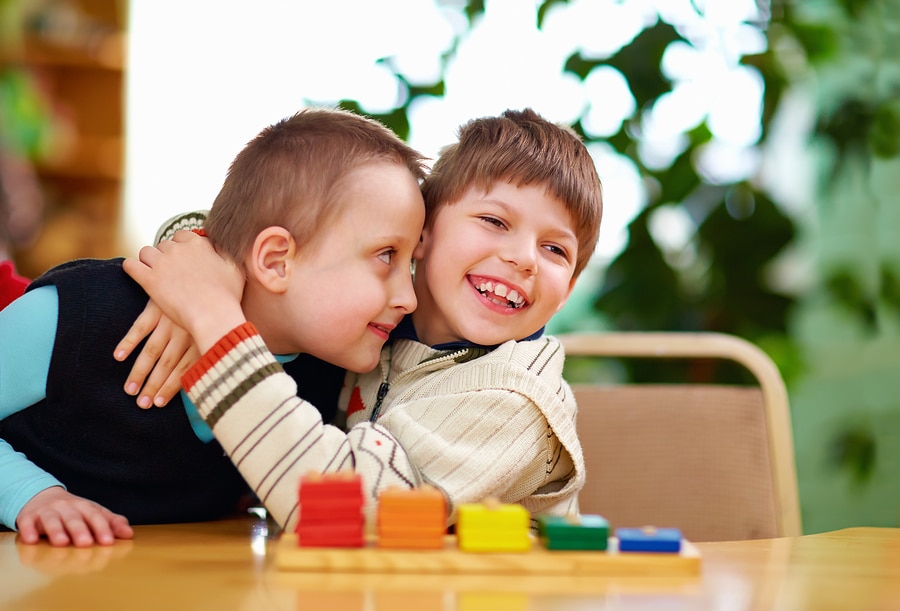When a child is born with or diagnosed with autism, the whole family is impacted, writes Matthew Pryor.
Although parents are the primary caregivers for a child with autism, the siblings are also greatly impacted. The presence of a brother or sister with Autism Spectrum Disorder (ASD) is considered stressful, as research and lived experience can tell us, but ASD can also have many positive effects on both the sibling with and without ASD.
Children who have a sibling with ASD are often well behaved, responsible and compassionate. They often have to grow up quickly, learning that ‘life is not fair’ before other children of their age, and become aware of the realities of financial hardship, fear, and recognition that their parents can’t ‘make things better’ far earlier than expected.
In general, young children have more concern for themselves than the world around them – they have little understanding about how things affect others. Once they attend school, children begin to see and understand how others see and experience things, and their sibling’s differences become more apparent. When siblings become adolescents they may be embarrassed by their brother or sister, and then feel guilt for this embarrassment. Siblings may also feel burdened by responsibilities (such as completing additional chores), but may also feel they must protect their sibling from the teasing and criticism of others.

Siblings are the first people we learn to fight, compromise, and makeup with. The siblings are often fearful of adding to the family stress level, and hold their feelings inside. Open discussion of these feelings helps prevent siblings holding in feelings until they fester into explosive anger, depression or physical complaints.
Siblings will ask questions that will become more detailed as they grow older, and they may have a strong need to have as much information as they can about the ASD, which can endure their entire lifetime. It is important for them to have answers to these questions, and they need to be told specifically about the limitations and strengths that ASD can cause. Having the information puts fears into perspective – in most cases, the fear of the unknown is worse than the reality of the truth. Without knowledge, non-disabled children may feel that parents are not protecting their sibling, that others may hurt them, be fearful of medical professionals and have difficulty trusting others.
The Parent to Parent SibSupport programme is designed to help equip siblings who have a wide range of disabilities deal with the good and the challenging aspects of growing with a brother or sister with a disability. The social aspects of the programme provide siblings with an opportunity to expand their support network by meeting and making friends with other children who have similar home situations. Meeting other children who whare these similarities not only helps to remove the “I’m the only one in the world” feelings, but puts their home life into context, and gives a feeling of normality to their living situation.
The programme’s main feature is the SibShop; this is a workshop where siblings are encouraged to openly voice any feelings, frustrations or questions in a safe and confidential environment. SibShops are facilitated by specially trained facilitators who are also siblings of people with disabilities, and can address any issues from participants from the perspective of someone who has lived a similar experience. In order to ensure that siblings feel completely safe to speak openly, the SibShops are closed to anyone other than the siblings and the facilitators.
Siblings attend the SibShops in groups according to their age bracket, and the facilitators engage and encourage siblings to participate in the sessions using a series of activities and games applicable to their age. Every group is different, and the facilitators are skilled in ensuring that the participants only share what they are comfortable with, and no expectations are imposed.

SibSupport is a programme that recognises the importance of the sibling’s role in the good life of their disabled family member, and equips siblings to grow up with a positive view of the future of their family. SibSupport introduces siblings with a disabled brother or sister to groups of children with similar experiences, and helps siblings to view their situation from a much more realistic perspective. This perspective allows siblings better function within their family, and provides the unique support for their brother or sister, that only a sibling can provide.
This article was first published in Altogether Autism Journal Christmas edition, 2014


